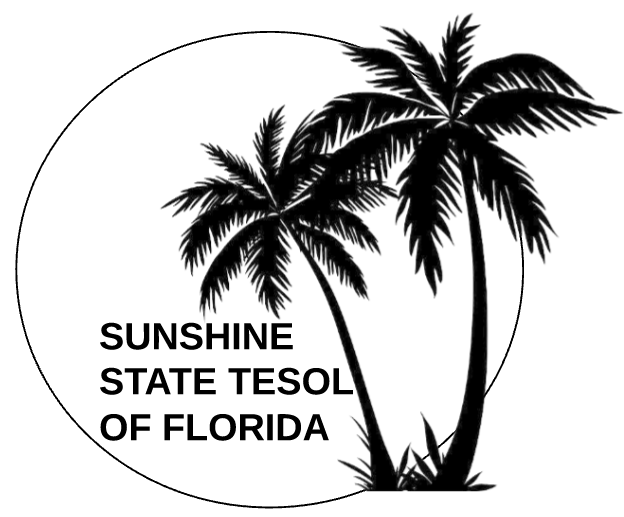|
Most Recent Position Statement |
SUNSHINE STATE TESOL OF FLORIDAPosition Statements on 6A-1.09422 Statewide, Standardized Assessment Program Requirements Approved by the SSTESOL ExeCUTIVE Board onJanuary 12, 2022.Background: Sunshine State Teachers of English to Speakers of Other Languages of Florida (SSTESOL) is a professional organization dedicated to the teaching of English to Speakers of Other Languages (ESOL). SSTESOL is a trusted leader in Florida for advancing the quality of English language teaching through professional learning, research, standards, and advocacy. The mission of SSTESOL is to provide leadership and advocacy in language policy issues and access to professional development opportunities, resources, and lively interaction in a professional network at all levels. Issue: New. Rule Making Process Amendments to 6A-1-09422 Statewide, Standardized Assessment Program Requirements Pursuant to s.1003.433(3), F.S. section {12}, beginning with the 2022-2023 school year, students who have been enrolled in an English to Speakers of Other Languages (ESOL) program for less than two years and have met all requirements for the standard high school diploma except for the passage of any assessment required for graduation as specified by ss.1003.4282 or 1008.22.F.S. or alternate assessment is eligible for a standard high school diploma if the student: {a} Passes the required assessment or alternate assessment after having received immersion English Language English Language instruction during the summer following the student senior year: or Position: It is the position of the SSTESOL Board of Directors that passing statewide standardized assessments for English Learners (ELs) who have been enrolled in ESOL classes for less than two years as a requirement for high school graduation has always been a hindrance for ELs to acquire a high school diploma. Therefore, SSTESOL supports the implementation of alternative assessments for students to demonstrate grade level expectations and as a measure of grade level achievement in ELA, if the student: {a} Passes the required assessment or 1. Sheltered – English, 2. Sheltered – Core/Basic Subject Areas, 3. Mainstream/Inclusion, 4. Maintenance or Developmental Bilingual Education, or 5. Dual Language (Two-way Developmental Bilingual Education) A few examples of alternative assessments which a teacher may use include:
Rationale: Adding the approved FLDOE instructional models for ESOL instruction provides clearer guidance to school districts. Removing “ In addition, using alternative assessments in lieu of alternate assessments addresses the unique needs of ELs when evaluating content knowledge and grade level expectations on formative assessments. Including examples of alternative assessments in the rule also provides teachers guidance in using this method of evaluating student progress and learning. Further, SSTESOL recommends the adoption of alternative assessments or non-traditional assessments as appropriate tools to accurately assess ELs’ progress and accomplishments in language and academic proficiency Position: In 12 (d), SSTESOL does not believe in the selection of student’s work as the sole responsibility of the teacher because, as TESOL professionals, our main goal is to develop ELs into autonomous learners and to advocate for their own learning and growth. Therefore, SSTESOL proposes and supports a portfolio or other forms of alternative assessments used to meet the requirements of this subsection, provided they meet this criterion: 1. Be selected by the student’s teacher during a student-led conference format where ELs prepare, reflect, and discuss evidence of work as having met grade level standards and expectations. Rationale: To avoid bias and prejudicial judgment of a teacher solely choosing the work of ELs as evidence of mastery of standards and expectations, a joint student and teacher activity engages ELs and is more powerful than the FLDOE proposed rule. Students also need to be actively involved in this process and hopefully this will encourage teachers to be more thoughtful about the portfolio items selected for review (Conderman & Hatcher, 2000). Position: All other sections of the rule are acceptable to SSTESOL, especially section {f}, the use of native language to accelerate English language learning. Rationale: It has been proven and attested through research and observation that home language aids in the enhancement of English language proficiency and academic achievement. SSTESOL appreciates FLDOE’s recognition and application of best practices in ESOL instruction in the construction of its rules.
References Black, P. & Wiliam, D. (2018). Classroom assessment and pedagogy. Assessment in Education: Principles, Policy & Practice, 25(6), 551–575. Carl, K. & Rosen, M. (2009). Using alternative assessment with English language learners: References and resources. Evaluation and Assistance Center East. Conderman, I. P. A. & Hatcher, R. E. (2000). Student-led conferences in inclusive settings. Intervention in School and Clinic, 36(1), 22–26. Fox, J. & Fairbairn, S. (2011). Test review: ACCESS for ELLs. Language Testing, 28(3), 425–431. Juniewicz, K. (2003). Student portfolios with a purpose. The Clearing House, 77(2), 73–77. Mavrelos, M. & Daradoumis, T. (2020). Exploring multiple intelligence theory prospects as a vehicle for discovering the relationship of neuroeducation with Imaginative/Waldorf Pedagogy: A systematic literature review. Education Sciences, 10(11), 334.
|
 SUNSHINE STATE TESOL OF FLORIDA
SUNSHINE STATE TESOL OF FLORIDA


